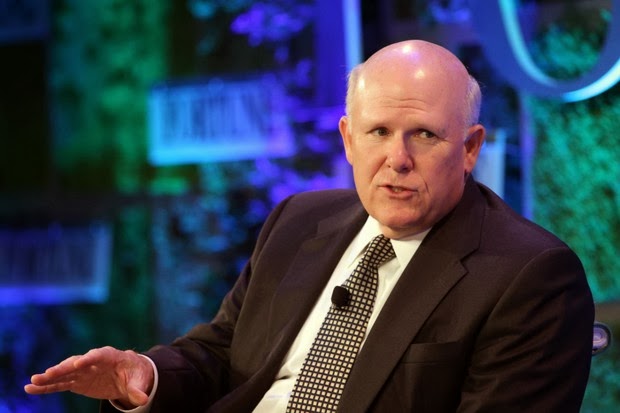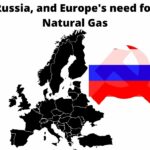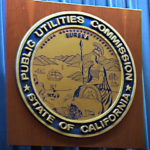Yesterday, GM’s CEO Dan Akerson gave a wide ranging interview at the Fortune Brainstorm Green conference![]() , in which he talked about a big list of things GM is doing to reduce the impact of their business. My own reporting on it (PluginCars.com
, in which he talked about a big list of things GM is doing to reduce the impact of their business. My own reporting on it (PluginCars.com ![]() and TorqueNews.com
and TorqueNews.com![]() ) is focusing on the next generation Chevy Volt, but he talked about so much more than that.
) is focusing on the next generation Chevy Volt, but he talked about so much more than that.
Why do I say automaking is inherently unsustainable? For me “sustainable” means activities that support long term sustenance of Society, for many many generations into the future. The act of making a car is highly consumptive, and to a large extent is an example of “use once and throw away” depending on how much of the material used to make the car gets recycled when the car is scrapped. Also the fuel that drives the typical car, gasoline, is highly corrosive and toxic every step of its life-cycle from extraction to refining to use. There is very little in what automakers do that properly sustains Society over the long term.
That said, GM has a number of nice projects that it is doing, nice achievements. For example, the majority of their facilities do not send excess material to the landfill, but instead recycle everything that doesn’t make it into a car. That is more than waycool. Add to that the massive use of solar power and other kinds of renewable energy, to power factories, and we have a company that has made a big commitment.
At the same time, in his comments Akerson made a strong pitch for expanding the extraction of shale gas. To do so means expansion of the practice of hydraulic fracturing, and continuing the death spiral that is the consumption of fossil fuels. Fossil fuel consumption is extremely non-Sustainable in so many ways.
Here’s a few quotes and commentary
We have to look at alternate propulsion, not only in electrification but compressed natural gas, biofuels, diesel, hydrogen fuel cells, we’re looking at all that and pursuing it aggressively. And, at the same time, we’re trying to use advanced technologies to lighten the car, make it more efficient.
For example, the new Corvette ‑‑ it’s comprised of carbon fiber nanotechnology, and fiberglass. … we not only lightened it, we dropped the center of gravity. We put in all the new technology in stability and control and brakes that only Ferraris have. And so we have a better car that makes mileage that when it’s cruising, it’s making 26 miles a gallon .. you look at the basic thermodynamics and physics that underpins the gas combustion engine, and you look at everything from cylinder deactivation, direct injection, variable valve timing and turbos
you can’t solve this by fiat, by policy from a political scientist. You have to get down and really reengineer from the ground up.
Chevy Cruze Diesel coming soon ..
it’s clean diesel, 46 miles per gallon, and that’s if you drive it not like you should. It will be the best mileage per gallon for a diesel. We’re the only ones doing it, and down into the compact area of the market just to get us there. We’ve actually seen in our tests even higher than 46 miles per gallon. … VW sells 80,000 down in the Jetta and Golf. So, why don’t we sell and give the American consumer some choice. … So they can buy American.
we hope by 2017 that we’ll have a half-million cars with one form of electrification or another
there have been 150 million miles driven on electricity now in the U.S. We’ve sold about 26-1/2 thousand of them. There’s nobody else who has done as many plug-in electric miles as we have. … this is the first generation. We sell a couple of thousand a month in the U.S.
Talking about the Next Generation Volt
we’ve got a lightweight this car, which is important, that the battery in it alone is 400 pounds. we’ve got to lightweight it in other ways. in this next generation we think we can decrease the price on the order of $7,000 to $10,000, without decontenting.
the second generation be much more, hopefully, profitable. I think it will be profitable.
we just introduced the Spark, which will be available in this market, California and Oregon, this summer. And it gets 82 miles on a charge, but then it’s out.
Then he started talking about oil supplies and the need to develop oil shale resources so we can access the natural gas reserves and all drive natural gas powered cars.
in the late ’70s we had an oil embargo. It was a signal that we all missed. A very flawed president at the time named Richard Nixon said we needed an energy policy. Of course, we didn’t get it. President Carter had another oil crisis and he told us all to drive 55 miles an hour and put a sweater on. That’s not an energy policy. And subsequently no president, no political leadership in this country has articulated a national energy policy, and ladies and gentlemen, our competition is.
we’ve been given a gift called shale. And there have to be safeguards in my opinion, to make sure that the shale can be extracted without polluting our ground water, et cetera, et cetera. I’m not a petroleum engineer, or a gas engineer, but hopefully that can be done. If it can, we sit on more BTUs of energy than Saudi Arabia does. … our energy industry is built around oil. … It’s going to have to transform and there has to be an integrated, national policy where there’s political leadership
we have this moment. It has to be grasped. And the engines are built today. We have natural gas engines that exist today. And we’ve committed to them into a three-quarter ton truck into our panel trucks, because you have to go to a central fueling station location.
you know that there is ubiquity of natural gas all through residential and industrial areas. Why not have one out of four, one out of three gas stations that has a natural gas fueling station, because today we actually produce a car that will take either liquid gasoline, gas as we call it, petrol, and it will also burn natural gas.
Sustainability is woven into our global strategies. It is what will sustain this company over the longer term.
We recycle, reuse to the tune where 105 of 125 plants produce no landfill, none, not a drop of paint, not an ounce of steel. It’s reused, recycled, and it makes good business for us.
We generate a billion dollars in revenue a year out of about $150-60 billion globally comes from reuse of material. And we cut about $90 million a year just in the U.S. in how we save. So we’re getting revenue on one hand, and we’re saving about $90 million just in the United States from our plants. Three of our plants in the U.S. produce anywhere from 17 to 25 percent of their total energy needs from landfill methane gas that we pump in and use it. And two out of the five largest solar arrays in the world are General Motors’. Those solar arrays, and when you look at it you’re very proud of it.
- Highway design could decrease death and injury risk, if “we” chose smarter designs - March 28, 2015
- GM really did trademark “range anxiety”, only later to abandon that mark - March 25, 2015
- US Government releases new regulations on hydraulic fracturing, that some call “toothless” - March 20, 2015
- Tesla Motors magic pill to solve range anxiety doesn’t quite instill range confidence - March 19, 2015
- Update on Galena IL oil train – 21 cars involved, which were the supposedly safer CP1232 design - March 7, 2015
- Another oil bomb train – why are they shipping crude oil by train? – Symptoms of fossil fuel addiction - March 6, 2015
- Chevron relinquishes fracking in Romania, as part of broader pull-out from Eastern European fracking operations - February 22, 2015
- Answer anti- electric car articles with truth and pride – truth outshines all distortions - February 19, 2015
- Apple taking big risk on developing a car? Please, Apple, don’t go there! - February 16, 2015
- Toyota, Nissan, Honda working on Japanese fuel cell infrastructure for Japanese government - February 12, 2015













